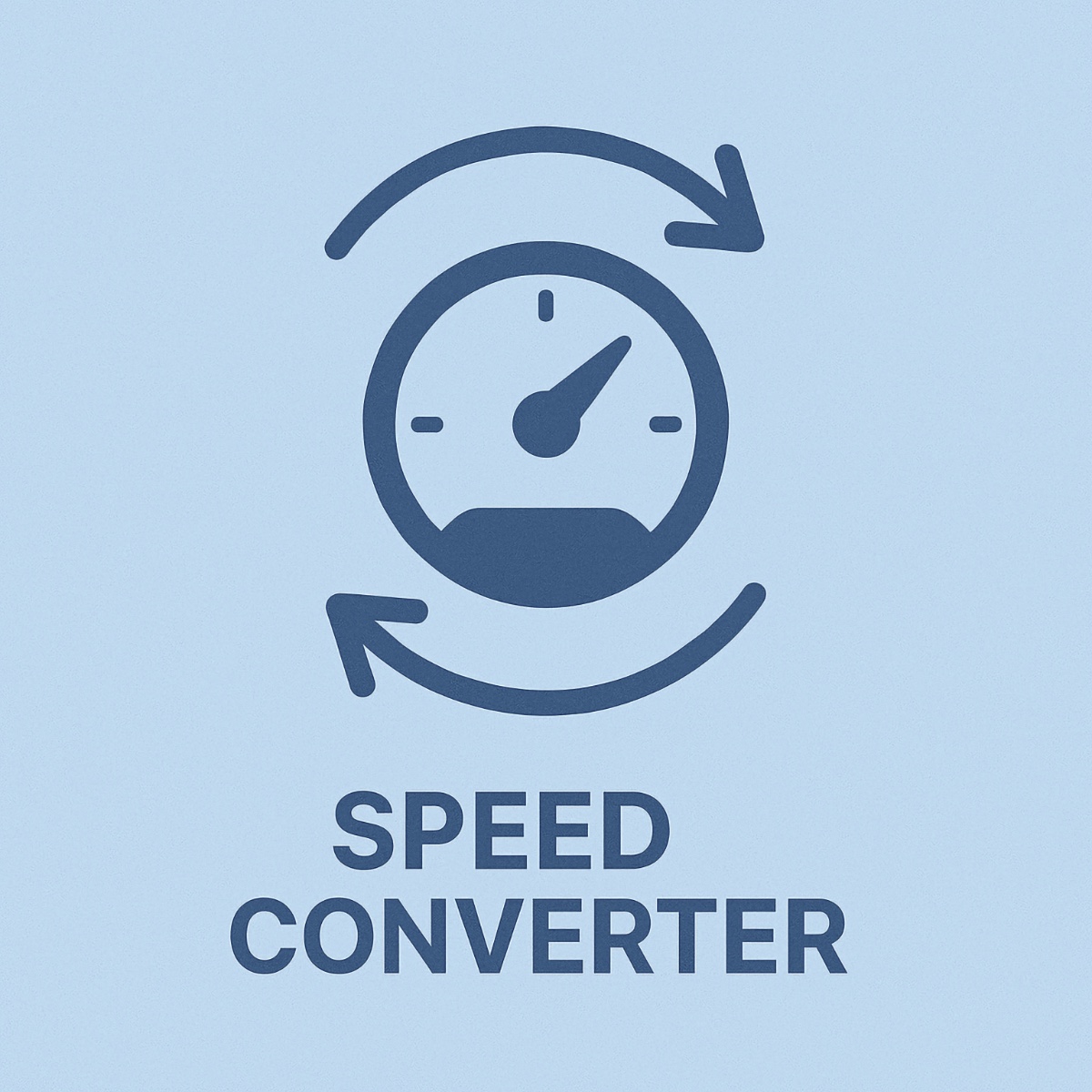Speed Converter
Convert any speed unit quickly and accurately. Whether you need to convert meters per second to kilometers per hour, miles per hour to knots, or Mach to the speed of light, our tool gives you instant results, clear explanations, and helpful tables – all in one place.
How to Use the Speed Converter
- Enter the value you want to convert.
- Select the original unit (From) and the target unit (To).
- See the result instantly, along with a human-readable explanation.
This tool supports all major speed units: meters per second, kilometers per hour, miles per hour, knots, Mach, and more.
Popular Speed Conversions
| From | To | Formula |
|---|---|---|
| Meters/second (m/s) | Kilometers/hour (km/h) | m/s × 3.6 |
| Kilometers/hour (km/h) | Meters/second (m/s) | km/h ÷ 3.6 |
| Miles/hour (mph) | Kilometers/hour (km/h) | mph × 1.60934 |
| Knots (kt) | Kilometers/hour (km/h) | kt × 1.852 |
| Mach (20°C, 1 atm) | Meters/second (m/s) | Mach × 343 |
| Speed of light (c) | Meters/second (m/s) | c = 299,792,458 m/s |
Speed Units Explained
What is a Meter per Second?
The meter per second (m/s) is the SI unit of speed, defined as the distance traveled in meters in one second.
What is a Kilometer per Hour?
A kilometer per hour (km/h) is a unit of speed commonly used for road speed limits, equal to 1,000 meters per hour.
What is a Mile per Hour?
A mile per hour (mph) is a unit of speed used in the United States and UK, equal to 1.60934 kilometers per hour.
What is a Knot?
A knot (kt) is a unit of speed equal to one nautical mile per hour, commonly used in maritime and aviation contexts.
What is Mach?
Mach is a dimensionless unit representing the ratio of the speed of an object to the speed of sound in the surrounding medium.
Common Speed Unit Converters

FAQ
-
What is the fastest speed achievable by humans?
The fastest speed achieved by humans is by the Apollo 10 crew, who reached 39,897 km/h (24,791 mph) during re-entry from the Moon.
-
How do I convert between different speed units?
To convert between speed units, multiply or divide by the appropriate conversion factor. For example, to convert m/s to km/h, multiply by 3.6.
-
Why are knots used in aviation and maritime navigation?
Knots are used because they are based on nautical miles, which relate directly to degrees of latitude and longitude, making navigation calculations easier.
-
What is the speed of sound and why does it vary?
The speed of sound is about 343 m/s (1,235 km/h) in air at 20°C. It varies with temperature, humidity, and the medium through which it travels.
-
What does it mean to break the sound barrier?
Breaking the sound barrier means traveling faster than the speed of sound in air, which creates a sonic boom due to the buildup of pressure waves.
-
How is speed measured in sports?
Speed in sports is measured using radar guns, timing gates, GPS devices, or high-speed cameras, depending on the sport and required accuracy.